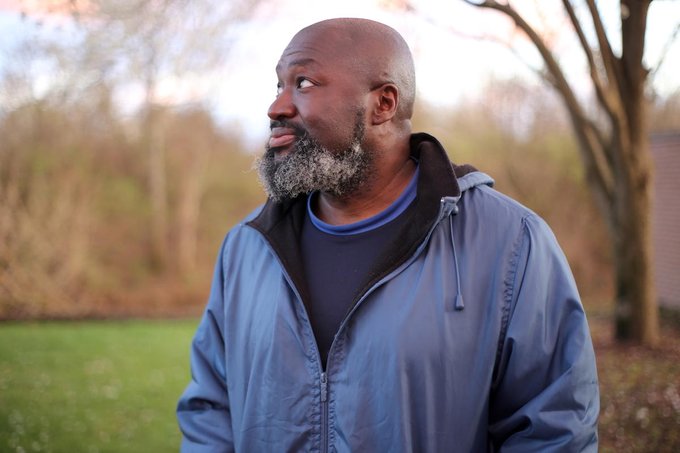
Matthew Charles is a Nashville, Tennessee father and grandfather who won early release under President Obama’s commutations for drug offenders, did well on the outside for two years, and then was ordered back to federal prison after a court determined he didn’t really qualify for the clemency after all.
There was a growing cry for President Donald Trump to step in and give Charles his freedom back. Support for the man has come everywhere from the conservative Federalist site to celebrity Kim Kardashian (who recently helped convince Trump to free Alice Marie Johnson, a great-grandmother convicted of a drug conspiracy who was serving a life sentence).
In January 2019, Matthew Charles again won his freedom. Charles was released under a criminal justice reform law.
According to Nashville Public Radio, “… the First Step Act, signed into law by President Trump last month, opened another avenue, in part by reducing guidelines for crack offenses and making those changes retroactive.” Prosecutors did not oppose Charles’ release.
Trump brought up that act at his 2019 State of the Union, saying that Charles was the first person released under it. He invited Charles to the SOTU as his guest.
Charles, who is 51-years-old according to court filings, served 21 out of 35 years for a crack cocaine dealing sentence before he was released from federal prison in 2016. Although reports say he’s done well on the outside, the government has now re-sentenced him to serve the rest of the term after arguing that Obama’s commutations didn’t apply to his case.
The government argues that Charles’ serious criminal history before the drug dealing, which included a shooting, rendered him ineligible for the sentence reduction. You can read some of the court records in the case below. However, Charles’ attorneys and supporters argue that he’s a “shining example” of rehabilitation and that society is no longer served by putting Matthew Charles back behind bars. There is a GoFundMe page to help Charles.
“Charles never had a single disciplinary write-up in over twenty years in prison,” court documents filed by Charles’ attorneys say. Taking classes and working, he was a model inmate. On supervised release, his record is immaculate. He works full time, does volunteer work to serve the poor, and is a shining example of what a person can, despite felony convictions, make of his life.”
Here’s what you need to know:
1. Charles Solicited Prayers & Support on Facebook After He Went Back to Prison on the Crack Cocaine-Related Sentence
Matthew Charles has shared thoughts about his case on Facebook. “Today, May 14th, isn’t going to be a pleasant day for me,” he wrote in 2018.
“Those who know me personally or have heard about my situation, and the decision of the Federal prosecution to appeal my release and the Federal Court order sending me back, know that this is the day, I have to report back to Federal prison, (after I’ve already served nearly 21 actual years and have been out for nearly two years), but now the Court has ordered me to go and serve the remaining time of that old crack cocaine drug sentence imposed on me back in 1996.”
He added: “However, I love you all and would like to continue to solicit your prayers and support. Thank you most kindly.” Charles’ Facebook page before he went back to prison was filled with photos of food, pictures of him with family and friends, lifting weights, and some religious sayings. He wrote in April 2018, “Out the door to buy me a cup of coffee and be a blessing. Whether I receive any or not. However, whenever you be a blessing, you are automatically blessed. So strive to be a blessing everyday. ** HAPPY SATURDAY **”
He also wrote about attending church and shared photos from religious services, writing in March 2018, “The worship service was awesome as Todd and his family led us (the entire church family) into the presence of God this morning.” In essence, his Facebook page shows him living a positive and simple life on the outside, which people who know him have verified in letters to the court.
2. Celebrities & News Sites Have Come to Charles’ Defense
Kim Kardashian used her massive Twitter following to rally people to Charles’ cause. She shared a Nashville Public Radio story on his plight and wrote, “This man is sentenced to 35 yrs for selling drugs. He serves over 21 yrs, is released, finds a job, new relationship, starts a new life, & now is being sent back for another 10 yrs because the original release was an error. This man has completely rehabilitated himself. So sad.”
It’s not only liberal celebrities who want Trump to commute Matthew Charles’ sentence or pardon him outright. The Federalist, a conservative website, wrote a story headlined, “Why President Trump Should Commute The Sentence Of Matthew Charles.” The story opines that “In the case of Matthew Charles and others where the criminal justice system has failed, decisive action from a courageous president may be the only hope.”
Concluded the site, “Prisons serve at least two important purposes: one is to punish, another is to rehabilitate. Charles has been subject to both. Twenty-one years in prison is a quarter of a lifetime, a heavy price to pay for selling drugs. He emerged a positive member of society. This should be celebrated, not reversed.”
Trump has not weighed in on the matter, giving any indication whether he is open to acting on Matthew Charles’ behalf. More than 8,000 people have signed a Change.org petition seeking Matthew Charles’ release. “Matthew Charles does not belong in prison for another day, let alone another decade. President Trump should use his clemency power to commute the rest of Charles’ sentence so he can return to his family and community,” the petition reads.
3. Charles Found a Job, a Serious Relationship & Was a Churchgoing Man on the Outside
There are many strong indicators that Matthew Charles had been rehabilitated. According to The Federalist, “Since his release Charles has been a fully employed, church-going member of his community who volunteers and is in a serious romantic relationship. Now he’s losing not only his reprieve, but also the new life he has built.”
The Change.org petition tells a similar story. “Since his release Matthew has held a steady job, volunteers every Saturday, has reconnected with his family, and began a serious relationship. He is part of a community in Nashville, TN that strongly opposes this cruel decision to strip away his freedom,” the page says.
A sentencing memorandum in the case, filed by the public defenders representing Charles, says that “Charles has not only reformed, but he has developed into an unusually virtuous person.” The attorneys attached letters from his employer, from the director of the pantry where he volunteers, from his pastor and others. “They unequivocally vouch for his character. In detail they describe how Charles, in his daily life, humbly goes above and beyond to help others. They say it literally sickens them to think of this thoroughly virtuous man having to return to prison for at least nine more years,” the court documents say.
“Charles is being sentenced for having sold 216 grams of crack cocaine. Back when he sold it, the statutory penalties were wrongfully elevated due to the 100:1 crack-to-powder ratio,” the documents say. “It is crystal clear that society does not need another pound of Charles’ flesh to set the moral balance straight,” say the documents. In turn, the government argued, “Based upon the defendant’s criminal history, the defendant is a career offender under §4B1.1. The defendant is also an Armed Career Criminal.”
Nashville Public Radio reports that Charles is a community volunteer and, while in prison, he “took college classes and correspondence courses, he taught a GED program and became a law clerk.” He organized Bible studies and helped illiterate inmates, according to the radio station. He had no disciplinary actions while in federal prison, NPR reports.
According to The Hill, Charles “found a job, rented an apartment, and bought a car. He reconnected with his children and grandchildren and met a new woman to love. He became a weekly volunteer at a local food pantry.”
4. Federal Prosecutors Appealed Charles’ Release on the Grounds He Was a ‘Career Offender’
What was the government’s argument more specifically? According to Nashville Public Radio, after he served 21 years in prison, his sentence was reduced by the Obama administration measure designed to remove disparities in how crack cocaine was treated in the criminal justice system. The U.S. Attorney’s office appealed, arguing that Charles “was legally considered a ‘career offender’ due to a prior stint in state prison.” As a result, they said that his case didn’t qualify for Obama’s commutation plan, and a federal appellate court agreed.
The NPR story says that Charles admits he used to be a drug dealer but says he’s changed. After all, that was more than two decades ago. In 1996, when a judge gave him the lengthy sentence, the judge called Charles “a danger to society who should simply be off the streets.” But, again, that was more than 20 years ago. In sending him back, a new judge called him a case of “exemplary rehabilitation,” NPR notes, but said the law gave her no choice but to revoke his release. That’s why people are now pinning their hopes on the power of the president.
According to court documents filed in his case, Charles’ past criminal history before the drug offense was very serious. He “was charged with numerous offenses arising from his sales of crack cocaine to military personnel at Ford Campbell Army Base,” court documents say of the underlying offense. Charges included making false statements in relation to acquisition of a firearm. He was responsible for 216 grams of crack cocaine.
The court documents say that Charles’ past criminal history included “three convictions for breaking and entering into a dwelling; one conviction for first-degree kidnapping; one conviction for second-degree kidnapping; one conviction for assault with a deadly weapon inflicting serious injury; and one conviction for possessing a weapon of mass destruction,” the latter defined as a sawed-off shotgun. He was accused years ago of kidnapping a woman for “the purpose of terrorizing her,” and escaped from a police interview room, whereby he tried to steal a car and ended up “ultimately shooting the victim of the carjacking in the head with a sawed-off shotgun,” say court documents.
You can read a court decision that describes the military base drug dealing conviction here.
The court documents noted that Charles’ sentence was reduced from 420 months to 292 months but the government argued he was “legally ineligible for a reduced sentence because he had been found to be a career offender at sentencing.”
The judge’s re-sentencing order for Charles states: “Defendant is to self-report at 2:00 p.m. on May 14, 2018. Appeal rights given. Order to enter.” Some court documents say he could potentially serve around another decade, however.
5. Charles Was Raised in an Abusive Home
Matthew Charles is an Army veteran, according to NPR, who attributes some of his early problems to violence in the home growing up, telling the radio station that his father was violent with his children “on a regular basis.”
Before Charles’ release people wondered: Will Trump pardon Charles or commute his sentence? That remains to be seen, although the president has already granted some pardons. So far, he has tended to favor pardons for people where he sees a political motive for prosecution. For example, he pardoned controversial former Sheriff Joe Arpaio. However, the president has also shown himself to be moved by some claims of racial mistreatment in the criminal justice system, as he posthumously pardoned Jack Johnson, an African-American boxer convicted of being involved in an interracial relationship. However, in the end, Charles didn’t need a pardon to secure release due to the new law.
